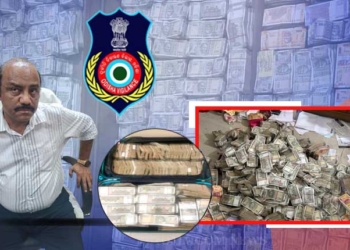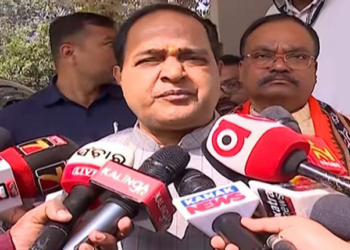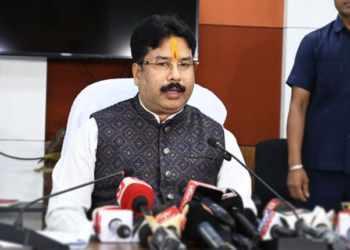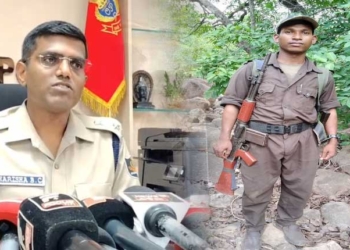Bhubaneswar: Chief Minister Mohan Charan Majhi set the tone for the future of law enforcement in the State, with an emphasis on accountability, transparency, and public trust while expressing his deep appreciation for the Odisha Police, calling them “disciplined, people-oriented, and efficient” in a stirring address on the concluding day of the two-day conference of Collectors and Superintendents of Police (SPs) on Saturday. He emphasized the critical role law enforcement plays in the state’s governance.
“Although there may be some exceptions in the police service, the state police’s tireless efforts have consistently kept Odisha a peace-loving state,” noted Majhi acknowledging the challenges faced by the police. He highlighted the successful conduct of simultaneous Lok Sabha and Assembly elections, particularly in Maoist-prone areas, and praised the peaceful organization of major events like the Rath Yatra of Lord Jagannath. 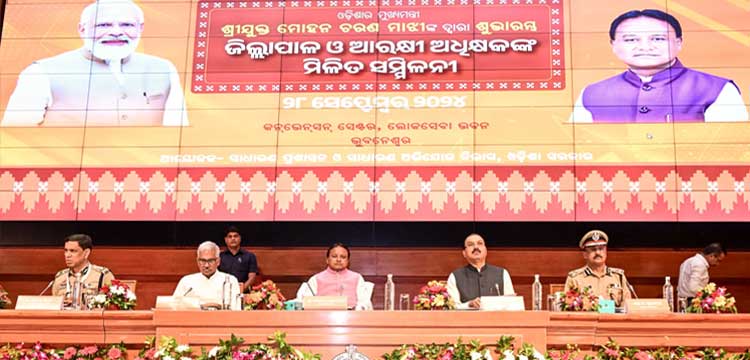
Majhi paid tribute to the sacrifices made by Odisha Police in combating Maoist violence, stating that although progress has been made, the fight is not over. “Our government, in collaboration with the Central government, is determined to eradicate Naxalism from Odisha within the stipulated time,” he said, setting a goal to eliminate Maoist threats by March 31, 2026. He reiterated the government’s zero-tolerance policy towards Maoist violence, issuing a stern warning to Maoists to surrender and return to the mainstream.
The Chief Minister also expressed concern over the increasing violence against women and children, criticizing the low conviction rates in these cases.
“The 9.73% conviction rate for crimes against women is unacceptable by any standard,” he said, demanding accountability and better investigation processes from the police force. He announced plans to provide a detailed district-wise report on cases involving violence against women and warned that the government will not tolerate incompetence or lack of intent in bringing perpetrators to justice.
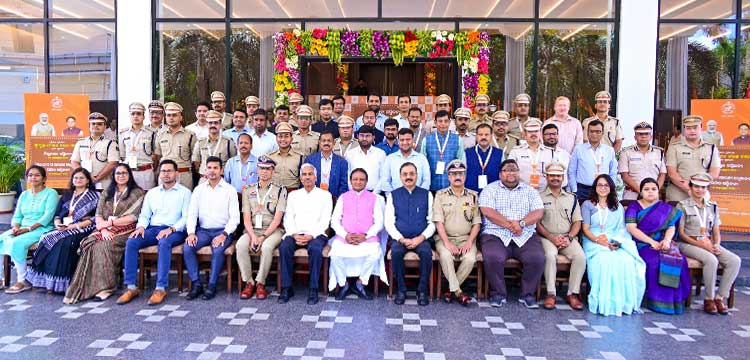
Majhi outlined steps to improve public-police relations, urging police officers to adopt a more people-friendly approach, especially towards women and marginalized groups.
“No criminal goes to the police for justice. It is the victims who seek help. We must ensure their faith in the system remains intact,” he added.
The Chief Minister also highlighted several initiatives aimed at strengthening law enforcement, including the formation of a dedicated Special Security Battalion for the security of the Jagannath Temple in Puri, recruitment drives to fill 2,922 vacant posts, and the provision of 9,000 two-wheelers for police stations across the state.
Majhi also addressed the rise of cybercrime, calling for increased use of technology in combating online harassment and crimes against children and women. The government’s focus on stopping the illegal drug trade and organized crime was underscored, with Majhi urging the police to operate in “mission mode” to safeguard Odisha’s youth.
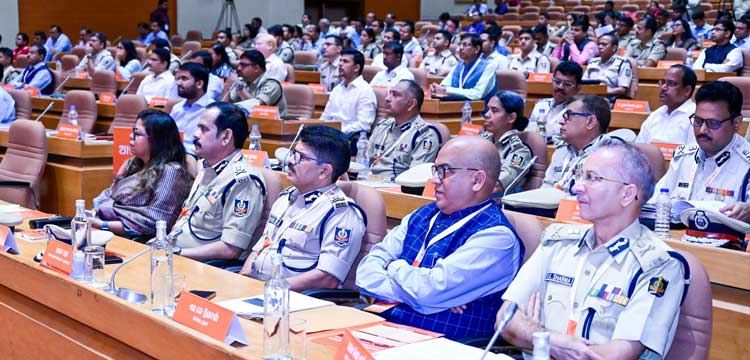
As Odisha continues to modernize its police force, Majhi stressed the importance of training and capacity-building for police officers, particularly in light of the recent reforms in India’s criminal justice system.
“In today’s social media age, every step is scrutinized by the general public. We must prepare accordingly,” he said, calling for improved public behaviour and legal compliance among police officers.
The Chief Minister concluded with a reminder of the government’s commitment to supporting the police force, but with a clear message that corruption and abuse of power will not be tolerated.
“The government stands firmly with the police force, but irregularities will never be accepted,” he warned.




